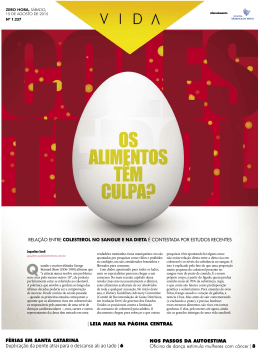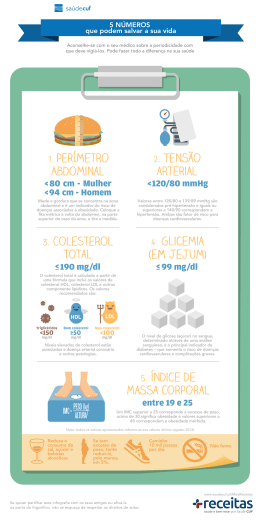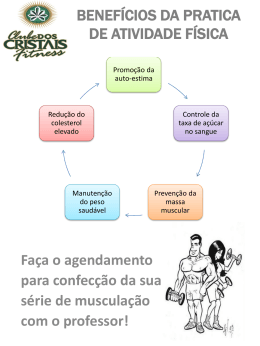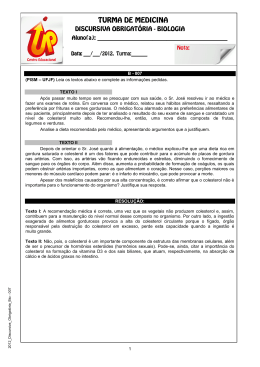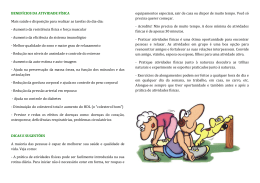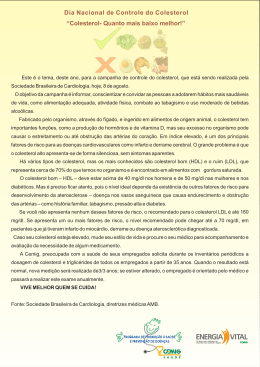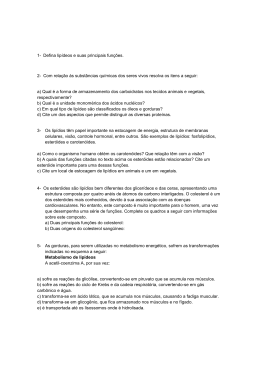The social role of Terminology: challenges of building a termbase to non-specialists Ana Rita Remígio CLLC – Universidade de Aveiro CLUNL – Universidade Nova de Lisboa European Parliament Luxemburg, 05.09.2014 CONTENTS Technical Communication & food labels… Understanding food labels Building a termbase for the consumer & the social role of Terminology The terminographical process The role of communicative contexts specialised corpora building and exploration Concluding remarks & comparison with IATE …back to Technical Communication 2 TECHNICAL COMMUNICATION … … TECHNICAL COMMUNICATION technical communicator product user guide user 3 … AND FOOD LABELS “When I was president of the Society for Technical Communication, I gave the President’s Award to the US Food and Drug Administration for their food labels. I thought then – and continue to believe now – it is one of the most incredible feats of technical communication ever pulled off. The FDA managed to develop a clear, consistent means of informing consumers what’s in their food.” * Saul Carliner, 2010 Concordia University, Montreal * our highlight 4 Source: www.CartoonStock.com READING FOOD LABELS "I read all package labels for my health. Now my eyes are shot!" 5 Source: http://a7.idata.over-blog.com/0/07/29/61/pr-2005-actimel.jpg Ingredients Yogurt (skimmed milk, skimmed milk concentrate/ powder, cream, yogurt cultures), skimmed milk, sugar/liquid sugar (sucrose 8.4%), strawberry (2.1%), dextrose, milk mineral concentrate, stabiliser (modified tapioca starch), natural flavouring, acidity regulator (sodium citrate), L. Casei Danone culture (Lactobacillus casei DN 114001), vitamins (B6, D). Source: http://www.allmystery.de/i/ ta8ee79_OrbitSpearmint1.jpg Source: https://farmacialinaida.s3.amazonaws.com/ a06D000000SfhTo20121204185843_big.jpg Ingredients made of: sorbitol, gum base, natural and artificial flavours, less than 2% of: mannitol, xylitol, soy lecithin, malic acid, citric acid, acesulfame K, aspartame, fumaric acid, sucralose, color (yellow 6 lake), BHT (to maintain freshness. Phenylketonurics: contains phenylalanine. Ingredients Demineralised whey, skimmed milk, vegetable oils, lactose, fish oil, potassium chloride, sodium citrate, calcium lactate, magnesium sulphate , calcium carbonate, vitamin C, potassium hydroxide, taurine, iron sulphate, potassium carbonate, zinc sulphate, niacin, vitamin E, pantothenic acid, vitamin A, copper sulphate, riboflavin, thiamin, citric Acid, vitamin B6, beta carotene, manganese sulphate, vitamin K, folic acid, potassium iodide, vitamin D, biotin, vitamin B12. 6 Source: http://www.unileverfoodsolutions.pt/wu_cache/img/058/mis_50141612/Becel_Pro_Activ_250g_0000x0000_0.jpg DO WE UNDERSTAND WHAT’S ON A FOOD LABEL? plant sterols esters potassium sorbate β-carotene bad cholesterol ? emulsifiers carotenoids margarine 7 How can Terminology contribute to the transmission of scientifically valid and accurate information on functional food to the consumer? 8 BUILDING A TERMBASE FOR THE CONSUMER terminographer AlFαBeTa 9 10 esterol vegetal Sinónimo: fitosterol Definição: ingrediente, naturalmente presente em pequenas quantidades nas plantas e em alguns alimentos de origem vegetal, que, em quantidades significativas, diminui a absorção de colesterol no intestino, contribuindo para a redução dos seus níveis no sangue Informação adicional: Os esteróis vegetais estão naturalmente presentes, por exemplo, nos óleos vegetais, cereais, legumes e frutos, embora em pequenas quantidades. Esta substância contribui para a redução do colesterol total e do colesterol LDL. O colesterol HDL permanece inalterado. THE SOCIAL ROLE OF TERMINOLOGY 12 KNOWLEDGE AND POPULARISING SCIENCE Knowledge production interdisciplinarity Knowledge dissemination hyperspecialisation 13 THE SOCIAL ROLE OF TERMINOLOGY Terminological resources target public: translators, technical writers, specialists, students, ... a means to an end: “the practical terminologist (…) should never lose sight of the fact that the text is both the source and the destination of the term” (Shreve, 2001:775) Our proposal termbase targeted at non-specialists termbase as popularising science resource (establishing bridges) disseminating Terminology as a special subject field, its goals and applications 14 THE SOCIAL ROLE OF TERMINOLOGY Sager “terminologies oriented towards a mass market” “the need for a terminological information service for the general reader” (1990:228) 15 (Pointer, 1996) 16 BUILDING A TERMBASE FOR THE CONSUMER 17 Systematisation of terminographical processes Comparison Rondeau (1984) Cabré (1993; 1999) Rey (1995) Meyer and Mackintosh (1996) Dubuc (2002) L’Homme (2004) The PAVEL (2004) Arntz, Picht, et al. (2004) Not adequate to our needs Absence / inexistence of: → communicative dimension of analysis; → data validation stage; → final stage for data update; → clear delimitation of the preparatory stages of the terminographical process. 18 3 phases pre-terminography pre-translation terminography translation post-terminography post-translation* Terminographical process 3 dimensions conceptual conceptual communicative communicative textual linguistic** * Gouadec, 2002; 2005; 2007 ** Sager 1990; Cabré, 1993; L’Homme, Heid, et al. 2003 19 TERMINOGRAPHICAL PROCESS Pre-terminography Phases Stages — goals setting — special subject field conceptual representation — communicative contexts identification — specialised corpora building Terminography — termbase architecture — terminology constitution — conceptual systems building — definition writing — term records filling Post-terminography — data validation — termbase industrial and commercial application — data update 20 TERMINOGRAPHICAL PROCESS Pre-terminography Phases Stages — goals setting — special subject field conceptual representation — communicative contexts identification — specialised corpora building Terminography — termbase architecture — terminology constitution — conceptual systems building — definition writing — term records filling Post-terminography — data validation — termbase industrial and commercial application — data update 21 articles in maganizes and newspapers popularising science monographies articles in popularising science magazines food labels FAQs project abstracts ads marketing material product presentation leaflets glossaries TEXT PRODUCERS faculty researchers food industry actors science communicators journalists consumer 23 Text selection and corpus organisation identification and extraction term candidates and potential definitions meet the needs of the consumer? 24 COMMUNICATIVE CONTEXTS faculty researchers science communicators CC1 food industry actors journalists CC3 CC2 consumer 25 CORPUS DESIGN ALFα Corpus faculty researchers science communicators Tokens: 77,662 Reference corpus Tokens: 13,447 CC1 25,163 food industry actors journalists CC3 CC2 consumer 29,031 23,468 26 textual dimension conceptual dimension communicative dimension corpus / text linguistic vs. extra-linguistic text producers, communicative intentions, target public Corpus-based terminographical process corpora building corpora exploration design & text selection computational tools term candidates identification & extraction data validation definitions identification & extraction beyond the corpus 27 STUDY CORPORA ALFα Corpus ALFαsterols subcorpus ALFαsterols reference corpus popularising discourse on food items with plant sterols scientific discourse on food items with plant sterols 28 CC1: faculty, researchers, science communicators CC2: food industry actors CC3: journalists 15 texts 13 texts 26 texts 19 texts STUDY CORPORA 29 EXPLORING SPECIALISED CORPORA Oxford WordSmith Tools WordList / Concord terminology constitution textual 3 dimensions definition writing communicative conceptual 30 TERMINOLOGY CONSTITUTION 31 TERMINOLOGY CONSTITUTION Term candidates Criteria special subject field frequency Freq. FACTORES DE RISCO 62 LEITE FERMENTADO 46 ACTIVIDADE FÍSICA 45 ÁCIDOS GORDOS 32 RISCO DE DCV 32 DCV ÓMEGA 3 27 GÉNERO ALIMENTÍCIO 26 DOENÇAS CARDIOVASCULARES 24 FLORA INTESTINAL 20 HIDRATOS DE CARBONO 20 SAÚDE PRESSÃO ARTERIAL 20 GORDURAS SATURADAS 19 NÍVEIS DE COLESTEROL 15 ALIMENTOS FUNCIONAIS 14 PROBIÓTICOS 44 COLESTEROL SANGUÍNEO 13 DOENÇA 42 EXCESSO DE PESO 13 EXERCÍCIO FÍSICO 13 ADITIVO ALIMENTAR 12 Term candidates COLESTEROL Freq. 146 122 GORDURA 92 IOGURTE 87 SANGUE 54 54 AÇÚCAR 49 LEITE 45 NUTRIMENTO 38 ALIMENTAÇÃO 36 VITAMINAS 32 32 TERMINOLOGY CONSTITUTION faculty researchers science communicators Term candidates 62 LEITE FERMENTADO 46 ACTIVIDADE FÍSICA 45 ÁCIDOS GORDOS RISCO DE DCV ÓMEGA 3 GÉNERO ALIMENTÍCIO Term candidates Freq. FACTORES DE RISCO 62 LEITE FERMENTADO 46 ACTIVIDADE FÍSICA 45 ÁCIDOS GORDOS Term 32 candidates RISCO DE DCV 32 COLESTEROL 27 DCV 26 ÓMEGA 3 GÉNERO ALIMENTÍCIO 32 32 Term candidates 27 COLESTEROL 26 DOENÇAS CARDIOVASCULARESDCV Freq. 146 24 122 92 GORDURAS SATURADAS 20 GORDURA 20 IOGURTE 20 SANGUE19 NÍVEIS DE COLESTEROL SAÚDE 15 54 ALIMENTOS FUNCIONAIS EXCESSO DE PESO 14 AÇÚCAR 13 LEITE 13 EXERCÍCIO FÍSICO 13 PROBIÓTICOS 44 ADITIVO ALIMENTAR 12 DOENÇA 42 NUTRIMENTO 38 ALIMENTAÇÃO 36 VITAMINAS 32 FLORA INTESTINAL HIDRATOS DE CARBONO PRESSÃO ARTERIAL COLESTEROL SANGUÍNEO food industry actors Freq. FACTORES DE RISCO 87 54 49 45 journalists Term candidates Freq. FACTORES DE RISCO 62 LEITE FERMENTADO 46 ACTIVIDADE FÍSICA 45 ÁCIDOS GORDOS RISCO DE DCV 32 ÓMEGA 3 32 Term candidates 27 146 GÉNERO ALIMENTÍCIO COLESTEROL 26 122 DOENÇAS CARDIOVASCULARES 24 DCV FLORA INTESTINAL 20 GORDURA HIDRATOS DE CARBONO 20 Freq. Freq. 146 122 DOENÇAS CARDIOVASCULARES GORDURA 24 92 FLORA INTESTINAL 87 PRESSÃO ARTERIAL IOGURTE 20 87 54 GORDURAS SATURADAS NÍVEIS DE COLESTEROL 15 AÇÚCAR 49 COLESTEROL SANGUÍNEO SANGUE19 15 SAÚDE 14 AÇÚCAR13 54 GORDURAS SATURADAS 20 IOGURTE 20 SANGUE 20 SAÚDE 19 ALIMENTOS FUNCIONAIS 45 EXCESSO DE PESO LEITE 13 45 EXERCÍCIO FÍSICO EXCESSO DE PESO 14 LEITE 13 PROBIÓTICOS 13 EXERCÍCIO FÍSICO 13 DOENÇA 42 13 PROBIÓTICOS 12 DOENÇA ADITIVO ALIMENTAR 12 NUTRIMENTO 38 NUTRIMENTO 38 ALIMENTAÇÃO 36 ALIMENTAÇÃO 36 VITAMINAS 32 VITAMINAS 32 HIDRATOS DE CARBONO PRESSÃO ARTERIAL COLESTEROL SANGUÍNEO 54 NÍVEIS DE COLESTEROL ALIMENTOS FUNCIONAIS 44 ADITIVO ALIMENTAR 92 54 49 44 42 33 COMPARISON OF THE NUMBER OF TERM CANDIDATES 1 Term / token ratio 0,9 0,8 0,7 0,6 CC1 faculty, researchers, science communicators 0,4 CC2 food industry actors 0,3 CC3 journalists 0,5 0,2 Ref. corpus 0,1 0 CC1 CC2 CC3 Ref. corpus 0,2 ‘Unique’ term / token ratio 0,18 0,16 0,14 CC1 0,12 0,1 CC2 0,08 0,06 CC3 0,04 0,02 0 CC1 CC2 CC3 Ref. corpus NEED TO REDESIGN THE CORPUS? 35 TERMINOLOGY CONSTITUTION faculty researchers science communicators Term candidates 62 LEITE FERMENTADO 46 ACTIVIDADE FÍSICA 45 ÁCIDOS GORDOS RISCO DE DCV ÓMEGA 3 GÉNERO ALIMENTÍCIO Term candidates Freq. FACTORES DE RISCO 62 LEITE FERMENTADO 46 ACTIVIDADE FÍSICA 45 ÁCIDOS GORDOS Term 32 candidates RISCO DE DCV 32 COLESTEROL 27 DCV 26 ÓMEGA 3 GÉNERO ALIMENTÍCIO 32 32 Term candidates 27 COLESTEROL 26 DOENÇAS CARDIOVASCULARESDCV Freq. 146 24 122 92 GORDURAS SATURADAS 20 GORDURA 20 IOGURTE 20 SANGUE19 NÍVEIS DE COLESTEROL SAÚDE 15 54 ALIMENTOS FUNCIONAIS EXCESSO DE PESO 14 AÇÚCAR 13 LEITE 13 EXERCÍCIO FÍSICO 13 PROBIÓTICOS 44 ADITIVO ALIMENTAR 12 DOENÇA 42 NUTRIMENTO 38 ALIMENTAÇÃO 36 VITAMINAS 32 FLORA INTESTINAL HIDRATOS DE CARBONO PRESSÃO ARTERIAL COLESTEROL SANGUÍNEO food industry actors Freq. FACTORES DE RISCO 87 54 49 45 journalists Term candidates Freq. FACTORES DE RISCO 62 LEITE FERMENTADO 46 ACTIVIDADE FÍSICA 45 ÁCIDOS GORDOS RISCO DE DCV 32 ÓMEGA 3 32 Term candidates 27 146 GÉNERO ALIMENTÍCIO COLESTEROL 26 122 DOENÇAS CARDIOVASCULARES 24 DCV FLORA INTESTINAL 20 GORDURA HIDRATOS DE CARBONO 20 Freq. Freq. 146 122 DOENÇAS CARDIOVASCULARES GORDURA 24 92 FLORA INTESTINAL 87 PRESSÃO ARTERIAL IOGURTE 20 87 54 GORDURAS SATURADAS NÍVEIS DE COLESTEROL 15 AÇÚCAR 49 COLESTEROL SANGUÍNEO SANGUE19 15 SAÚDE 14 AÇÚCAR13 54 GORDURAS SATURADAS 20 IOGURTE 20 SANGUE 20 SAÚDE 19 ALIMENTOS FUNCIONAIS 45 EXCESSO DE PESO LEITE 13 45 EXERCÍCIO FÍSICO EXCESSO DE PESO 14 LEITE 13 PROBIÓTICOS 13 EXERCÍCIO FÍSICO 13 DOENÇA 42 13 PROBIÓTICOS 12 DOENÇA ADITIVO ALIMENTAR 12 NUTRIMENTO 38 NUTRIMENTO 38 ALIMENTAÇÃO 36 ALIMENTAÇÃO 36 VITAMINAS 32 VITAMINAS 32 HIDRATOS DE CARBONO PRESSÃO ARTERIAL COLESTEROL SANGUÍNEO 54 NÍVEIS DE COLESTEROL ALIMENTOS FUNCIONAIS 44 ADITIVO ALIMENTAR 92 54 49 44 42 36 DEFINITION WRITING 37 Os fitosteróis actuam substituindo o colesterol (em virtude da sua semelhança estrutural com este) no momento da absorção (ao nível do intestino). identification of contexts rich in conceptual information Por terem uma estrutura muito semelhante ao colesterol, os esteróis vegetais competem pelo espaço disponível nestas micelas. Quando presentes em quantidades significativas, estes ingredientes tendem a ocupar espaço das micelas antes reservado ao colesterol. os esteróis vegetais diminuem a absorção do colesterol, diminuindo assim o valor do colesterol no sangue. esteróis vegetais, o ingrediente activo responsável pela redução do colesterol no organismo. 1. ingrediente; 2. substância naturalmente presente nas plantas e em alguns alimentos de origem vegetal; 3. presente nas plantas e em alguns alimentos de origem vegetal em pequenas quantidades; 4. tem uma estrutura química semelhante ao colesterol; 5. compete com o colesterol, no momento da absorção deste no intestino; 6. em quantidades significativas, diminui a absorção de colesterol no intestino; 7. reduz o colesterol no sangue. systematisation of conceptual characteristics identification and highlight of conceptual characteristics ingrediente, naturalmente presente em pequenas quantidades nas plantas e em alguns alimentos de origem vegetal, que, em quantidades significativas, diminui a absorção de colesterol no intestino, contribuindo para a redução dos seus níveis no sangue definition writing 38 DEFINITION WRITING faculty researchers science communicators food industry actors journalists 39 COMPARISON OF NUMBER OF CONCEPTUAL CHARACTERISTICS 0,2 0,18 0,16 0,14 0,12 0,1 0,08 0,06 0,04 0,02 0 Term: plant sterol Contexts rich in conceptual info / token ratio CC1 faculty, researchers, science communicators CC2 food industry actors CC3 journalists Ref. corpus CC1 CC2 CC3 0,12 Ref. corpus Conceptual characteristics / token ratio 0,1 CC1 CC2 CC3 0,08 0,06 0,04 0,02 0 characteristic 1 characteristic 2 characteristic 3 characteristic 4 characteristic 5 NEED TO REDESIGN THE CORPUS? 41 DEFINITION WRITING faculty researchers science communicators food industry actors X journalists X 42 CONCLUDING REMARKS → Communicative contexts and corpora building and exploration: → terminology constitution → definition writing → Need to redesign the specialised corpus? → Relevance of reference corpus? → Future work: → data validation → readjustment of definition writing methodology → beyond the corpus 43 … BACK TO TECHNICAL COMMUNICATION technical communicator terminographer food labels AlFαBeTa 44 Source: www.CartoonStock.com FOOD FOR THOUGHT… “She read the ingredients listed on the food label” 45 COMPARISON WITH IATE 46 COMPARISON WITH IATE 47 COMPARISON WITH IATE Definition ingredient, naturally present in small quantities in plants and in some foods of plant origin which, in significant amounts, reduces cholesterol absorption in the intestine, thus contributing to the reduction of blood cholesterol levels Note Plant sterols are naturally present in certain foods, for instance, vegetable oils, cereals, vegetables and fruit, though in small quantities. This substance contributes to the reduction in total cholesterol and in LDL cholesterol. HDL cholesterol remains unchanged. 48 COMPARISON WITH IATE Definition ingredient, naturally present in small quantities in plants and in some food of plant origin which, in significant amounts, reduces cholesterol absorption in the intestine, thus contributing to the reduction of blood cholesterol levels Note Plant sterols are naturally present in, for instance, vegetable oils, cereals, vegetables and fruit, though in small quantities. This substance contributes to the reduction in total cholesterol and in LDL cholesterol. HDL cholesterol remains unchanged. 49 Thank you! Ana Rita Remígio [email protected] 50
Download
